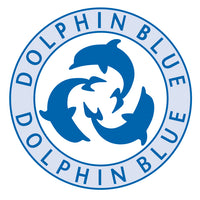
Starting in January, Queensland, Australia-based wildlife rescuer Carly Wilson committed to a 90-day pledge not to buy anymore stuff, on the heels of trying out month-long no-buying stints last year. As she writes on her blog: "As I've talked about a million times, an excess of stuff does more harm than good. It clutters up your home and (for me at least) your headspace. It also costs you financially (more than you realise) and worst of all, it is so damaging to the planet. "
We caught up with Wilson to see what exactly a consumer detox entails, how she's faring, and what lessons she's learned along the way.
Dolphin Blue: What inspired you to try a consumer detox? Carly Wilson: About two years ago, I started reading through personal finance blogs as a way to learn about money and pay off some debt. The personal finance blogosphere ended up leading me to the frugal living and minimalism blogospheres, including The Everyday Minimalist and Dave Bruno's The 100 Thing Challenge. I became inspired to cut down on my consumption of things as a way to save money and also conserve planetary resources. I work with wild animals for a living and understand that all the crap we buy has to come from somewhere -- and that "somewhere " is usually at the expense of our world's habitats. I think it's really important that we start learning to live with less.
DB: What rules have you set for yourself? CW: For three months, I can only buy the essential items like food and toiletries -- no clothing, no music, no books. Basically, no non-essential things. I'm still allowed to go to movies and out to dinner and things like that, though, because those things don't involve "stuff. "
DB: You're in it for 90 days this time. How's it going so far? CW: It's going pretty well. I did end up having to buy a few pieces of clothing for work because I just started a new job with a mandatory uniform that they don't provide. I felt pretty bad about that, but aside from that, I haven't broken any rules! I'm two months into my challenge now and the crazy thing I'm finding is that the further along I get with it, the less I am interested in buying stuff. In fact, I've donated a lot of what I do have. It feels great to live lightly, and I actually have saved quite a lot of money too!
DB: Why do you think not buying things is so challenging? CW: I think that our culture is addicted to the thrill of the next purchase. It can be exciting to covet something, and our culture surrounds us with subtle advertising to make us believe that owning certain things will make us feel a certain way -- but at the end of the day, chasing that lifestyle drains our bank accounts, clutters our homes, distracts us from what's important in life, and pollutes our planet.
DB: What have you learned from your efforts to not accumulate more stuff? CW: I've learned that it is really freaking amazing to have a clutter-free wardrobe and that you actually dress better if you have exactly what you need instead of piles and piles of mediocre [clothes]. This experiment has been a very liberating one, and I feel much lighter as a result. I don't have the burden of clutter or the burden of debt and that's an awesome feeling. As a wildlife advocate, I also feel great knowing that I am doing my part to lessen my impact on the planet.
DB: Would you recommend a consumer detox to others? CW: Definitely! It's amazing to step outside of our society's consumerism culture for a short while and realize how little you actually need to be happy.
To learn more about Wilson, visit her blog at www.carlywilson.com/articles, where she writes about wildlife and non-consumerism, and follow her on Twitter @carlycreature.
